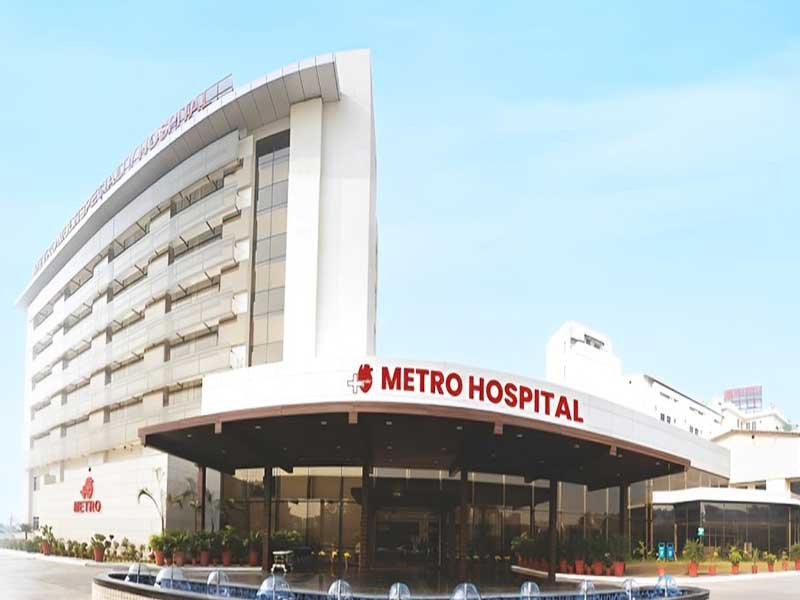Hemodialysis in India combines world-class expertise, modern dialysis centers, and affordable pricing, helping patients access quality kidney care without financial stress.
Home Treatments Nephrology Hemodialysis
Hemodialysis cost
Treatment Name
Estimated Cost
Hemodialysis 50 USD per sitting
Fill in your details and we'll get back to you soonGet Free Treatment Quote
Beds: 539
New Delhi
Beds: 230
New Delhi
Beds: 710
New Delhi
Beds: 650
New Delhi
Beds: 191
New Delhi
Beds: 310
New Delhi
Beds: 330
Gurugram
Beds: 380
New Delhi
Beds: 402
New Delhi
Beds: 1300+
Gurugram
Beds: 1000
New Delhi
Beds: 450
Faridabad
Beds: 675
New Delhi
Beds: 500
New Delhi
Beds: 400+
Faridabad

Max Super Speciality Hospital, Saket

Aakash Healthcare Super Speciality Hospital

Indraprastha Apollo Hospital

BLK Max Super Speciality Hospital

Dharamshila Narayana Superspeciality Hospital

Fortis Escorts Heart Institute

Fortis Memorial Research Institute

Manipal Hospital Dwarka

Max Super Speciality Hospital Shalimar Bagh

Medanta - The Medicity Hospital

Moolchand Kharaiti Ram Hospital

Sarvodaya Hospital

Sir Ganga Ram Hospital

Venkateshwar Hospital

Metro Heart Institute with Multispecialty
The average cost of Haemodialysis in India ranges from 9-60 USD.
The success rate of Haemodialysis in India is around 90%.
3-4 hours.
Following a hemodialysis session, individuals with end-stage renal disease (ESRD) undergoing chronic hemodialysis (CHD) often experience various issues, including a feeling of weakness, tiredness, exhaustion, weariness, or fatigue. These sensations diminish the ability to engage in routine daily activities, negatively impacting the overall well-being of the patients.
Potential risks associated with hemodialysis comprise:
1. Low blood pressure (hypotension)
2. Anemia
3. Muscle cramps
4. Sleep difficulties
5. Itching
6. Elevated blood potassium levels (hyperkalemia)
7. Pericarditis, characterized by inflammation of the membrane surrounding the heart
8. Sepsis
9. Bacteremia, denoting a bloodstream infection
10. Irregular heartbeat
11. Sudden cardiac arrest
These are various complications that may arise as a result of undergoing hemodialysis.
Yes, it is necessary to have a companion.
You can travel along with haemodialysis treatment.
Yes, you can do your own research and choose your therapist.
You can use Paracetamol regularly to manage mild to moderate pain. Moderate pain can be managed using non-steroidal anti-inflammatory drugs (NSAIDs) like diclofenac or ibuprofen.
Yes, insurance will cover the cost of Haemodialysis in India.
To discover the top doctors or hospitals in India, you can visit our website, mejocare on the doctors' page, you can filter and find the finest doctors, while on the hospital page, you can identify the best hospitals. Additionally, you can reach out to us, and we will gladly offer you all the necessary suggestions and information you need.
3-4 hours.
No, there is no waiting list for Haemodialysis in India.
Yes, you will likely need to undergo tests such as Urine analysis, Complete blood cell count and Kidney function tests.
Local anaesthesia
You can work simultaneously along with hemodialysis.
After undergoing Haemodialysis procedure, it is important to follow a healthy diet that can help you recover and prevent complications. Here are some general guidelines for eating well after treatment:
Aftercare services provided by the hospital include monitoring vitals, wound care, managing post-operative complications, rehabilitation services, and Follow-up.
Our care team can help you.
